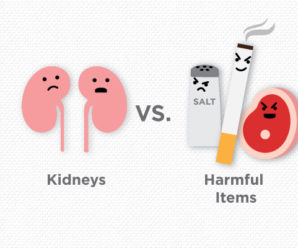For years, many thought there were many causes of cervical cancer. However, as researchers continue to compile data, one finding is clear: Skin-to-skin contact causes human papillomavirus (HPV) and HPV causes cervical cancer.

“Essentially, 95 percent of cervical cancers are connected to HPV,” said Dr. Elmer Lehman, gynecological oncologist at Marshfield Clinic Health System.
Due in large to the presence of the HPV vaccine, the cervical cancer death rate has decreased by more than 50 percent over the last 40 years. Yet 13,000 women are still diagnosed yearly, according to the American Cancer Society.
Cervical cancer risk factors
Statistics for many years have tied other risk factors to cervical cancer. From a bigger picture, these risk factors are basically linked to more sexual partners, causing more possible HPV, causing more cervical cancer risk, Dr. Lehman said.
Risk factors that have been tied to cervical cancer include:
- Chlamydia infection, genital herpes
- Long-term use of birth control pills
- Multiple sexual partners, especially high-risk partners
- Immunosuppression
- Early age at first intercourse (<18)
- Smoking
- Lower socio-economic status
“It’s not the birth control that causes cervical cancer,” Dr. Lehman said. “It’s that, statistically, women who are on birth control have more sexual partners, increasing their risk for HPV and in turn for cervical cancer.”
Smoking is the one risk factor that is not linked to sexual activity.
“Just like tars in nicotine concentrate in your lungs, they also concentrate in the cervical mucus,” Dr. Lehman said.
Women who smoke are almost twice as likely as non-smokers to get cervical cancer, according to American Cancer Society.
RELATED ARTICLE: What you win if you quit the Smoking Game (infographic)
HPV vaccine prevents cervical cancer
The HPV vaccine can prevent HPV, but the vaccine must be received well before becoming sexually active. These vaccines provide cervical cancer protection throughout someone’s entire life.
Children, including boys, are recommended to get the HPV vaccine starting at age 11 or 12. The vaccine requires two doses over six to 12 months apart for girls and boys ages 9-14. For vaccination at age 15 or older, three doses are necessary over six months.
If never vaccinated, or if an adolescent did not complete the two doses, it is recommended to receive the HPV vaccine between ages 13 and 26, Dr. Lehman said.
RELATED ARTICLE: Help protect against human papillomavirus with the HPV vaccine
Pap smear prevents cervical cancer
Cervical cancer screening, commonly called a pap smear, can detect abnormal cells on the outside of the cervix, including if these are precancerous cells.
RELATED ARTICLE: Abnormal Pap smear: Next steps
Women should follow these screening recommendations for pap smears:
- Younger than age 21: Do not screen
- Age 21-30: Pap test every 3 years (if normal)
- Age 30-64: Pap test every 3 years or co-testing (pap and HPV test) every 5 years
- Older than age 65: Do not screen if normal results the prior 10 years
Additional guidelines:
- After hysterectomy (including removal of the cervix): Do not screen if normal pap tests 10 years prior.
- If history of cervical cancer or cervical dysplasia (pre-cancer): Screening more often is usually required until 20 years out from treatment with normal tests.
For questions about cervical cancer, talk to a Marshfield Clinic Health System provider.
Schedule appointment Message your provider
Related Shine365 articles
Help protect against human papillomavirus with the HPV vaccine







Leave a Reply